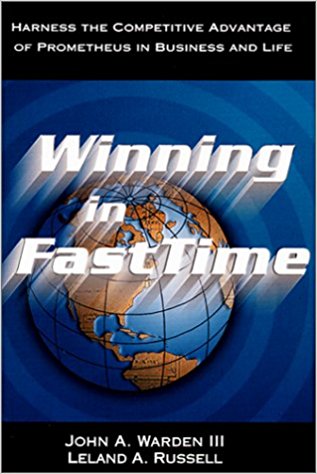Deep Work, by Cal Newport is the yin to the Rest, by Pang's yang. Deep Work is a well organized and compelling argument for why people in today's highly connected, highly distracted world, need to minimize the shallow and spend more time in deep, thoughtful work.
Where Rest, by Pang was a similar theme, Rest focused on what to do between deep work sessions. The two books together provide an inspirational and instructional guide to a focused, more fulfilling and healthier life.
A few changes that I've made (or am in the process of making) in my life based on this book are:
- Spend the last part of the day and/or the first part of the next morning planning my day; even down to blocking off hours on my calendar for deep time. At the end of the day, I consolidate notes in to a master to-do list, review upcoming calendar then shut it down for the day.
- Allocate time to look at email only a few times a day. Email should not be the all day distraction that most people make it to be. This single feature has radically changed my focus, productivity and quality of life. Learn how to turn off your email, you really won't miss much.
- My favorite tidbit on a philosophical level is to find the thing that arouses a "terrifying longing" and let it crowd out everything (that is shallow) out. The case is that the more distracted you are with email, interruptions, etc., the more easily something else can distract you. I’m looking for that thing; the one that I have a terrifying longing for and delegate the rest.
It's obvious that the deep work philosophy is critically important for writers, scientists, mathematicians, professors, etc., where complex solutions need to be mulled over, wrestled with and finally discovered. But what about a CEO whose day, nearly by definition, is somewhat shallow? While Newport touches on this a bit, my take is that deep work is necessary for everyone, but the time dedicated to it and the end product will be different based on your role. CEOs need deep time to think about company vision, structures, organization, markets, opportunities and threats. While a monastic philosophy may not be necessary for that role, a couple hours of deep work every day with regular sabbaticals and limited distraction from email during the day will keep him/her ahead of the pack.
In his final appeal, Newport invites you to "leave the distracted masses to join the focused few." In a short time, I’ve experienced the benefits of deep work, (semi) free from distraction and the results are profound and immediate and I’m sure they only get better over time.



